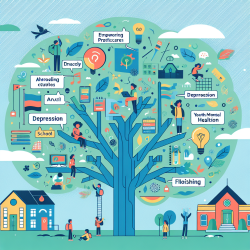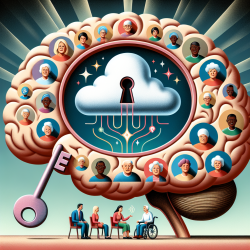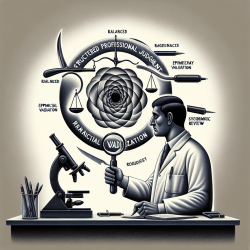Introduction
In the realm of mental health, understanding the diverse perspectives and beliefs about mental illness is crucial for practitioners. A recent study titled "Traditional, religious, and cultural perspectives on mental illness: a qualitative study on causal beliefs and treatment use" provides insights into how traditional, religious, and cultural beliefs influence the understanding and treatment of mental illness in Indonesia. This blog will explore the key findings of this study and discuss how practitioners can use this knowledge to improve their skills and encourage further research.
Key Findings
The study identified five main themes regarding beliefs about the causes of mental illness and the use of traditional/alternative treatments:
- Possessed Illness and Belief in Supernatural Forces: Many participants believed that mental illness was caused by possession by demons or evil spirits.
- Sinful or Cursed Illness: Some believed that mental illness was a result of sins or curses, leading to shame and stigma.
- Witchcraft or Human-Made Illness: There was a belief that mental illness could be caused by witchcraft or malevolent human actions.
- Traditional/Alternative Treatments: Many patients and families preferred traditional or alternative treatments, such as visiting shamans, religious leaders, or using herbal remedies.
- Barriers to Treatment: Lack of knowledge, stigma, and cost were significant barriers to accessing modern mental health care.
Implications for Practitioners
Understanding these beliefs is essential for practitioners working in multicultural settings. Here are some ways practitioners can improve their skills based on the study's findings:
- Cultural Sensitivity: Practitioners should be aware of and respect the cultural beliefs and practices of their patients. This understanding can help build trust and improve communication.
- Education and Awareness: Educating patients and their families about mental health can help dispel myths and reduce stigma. Practitioners can play a key role in increasing mental health literacy.
- Collaboration with Traditional Healers: Engaging with traditional healers and integrating their practices with modern treatments can enhance patient outcomes.
- Research and Advocacy: Further research is needed to explore the effectiveness of traditional treatments and how they can be integrated into modern healthcare systems.
Encouraging Further Research
This study highlights the need for more research into the cultural, traditional, and religious perspectives on mental illness. Understanding these perspectives can lead to more effective and culturally appropriate mental health interventions. Practitioners are encouraged to engage in research and contribute to the growing body of knowledge in this area.
To read the original research paper, please follow this link: Traditional, religious, and cultural perspectives on mental illness: a qualitative study on causal beliefs and treatment use.










